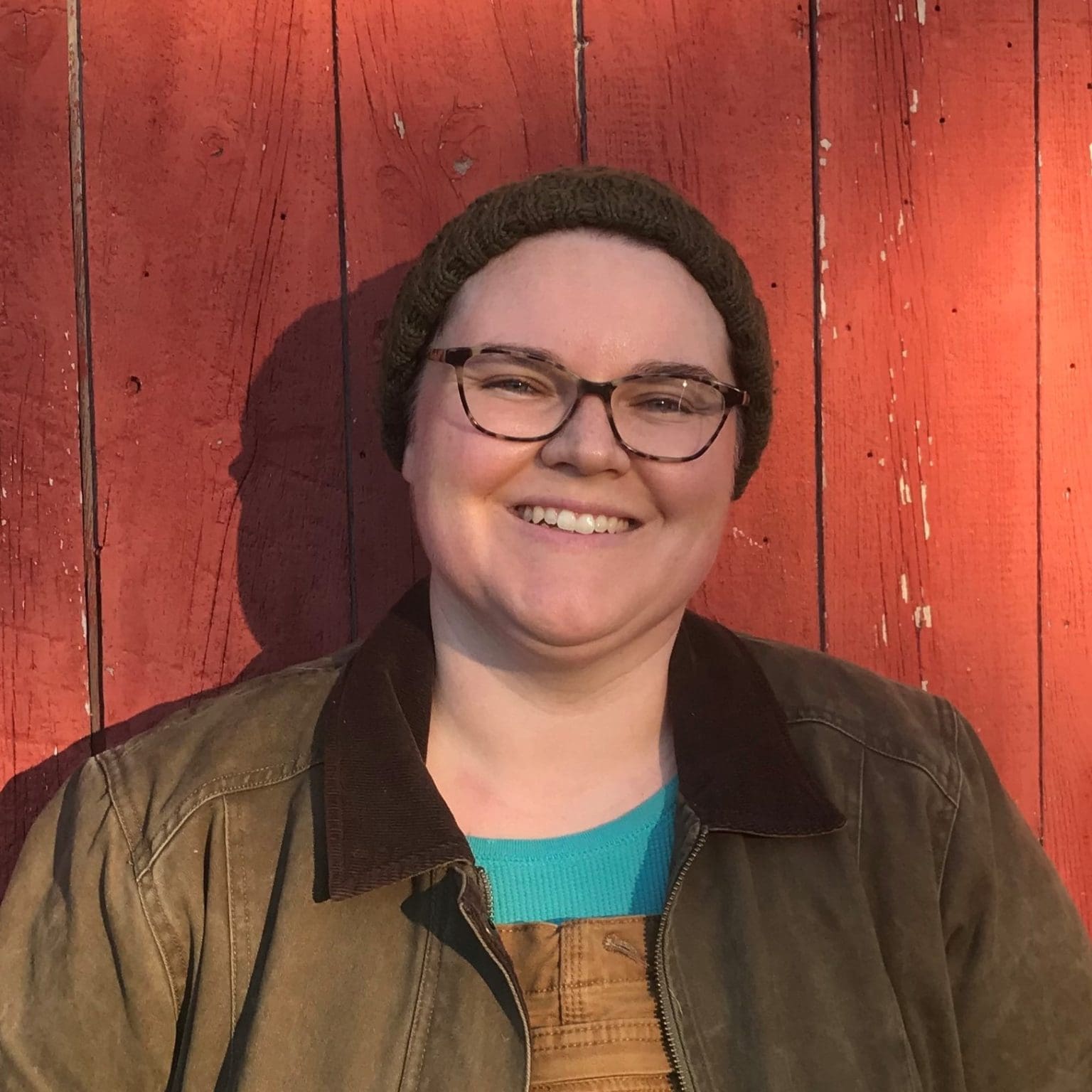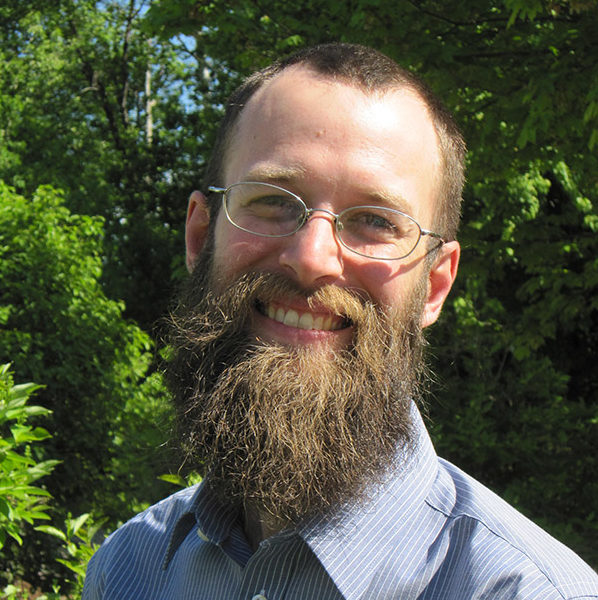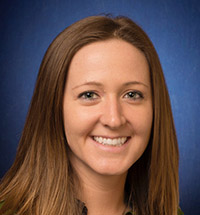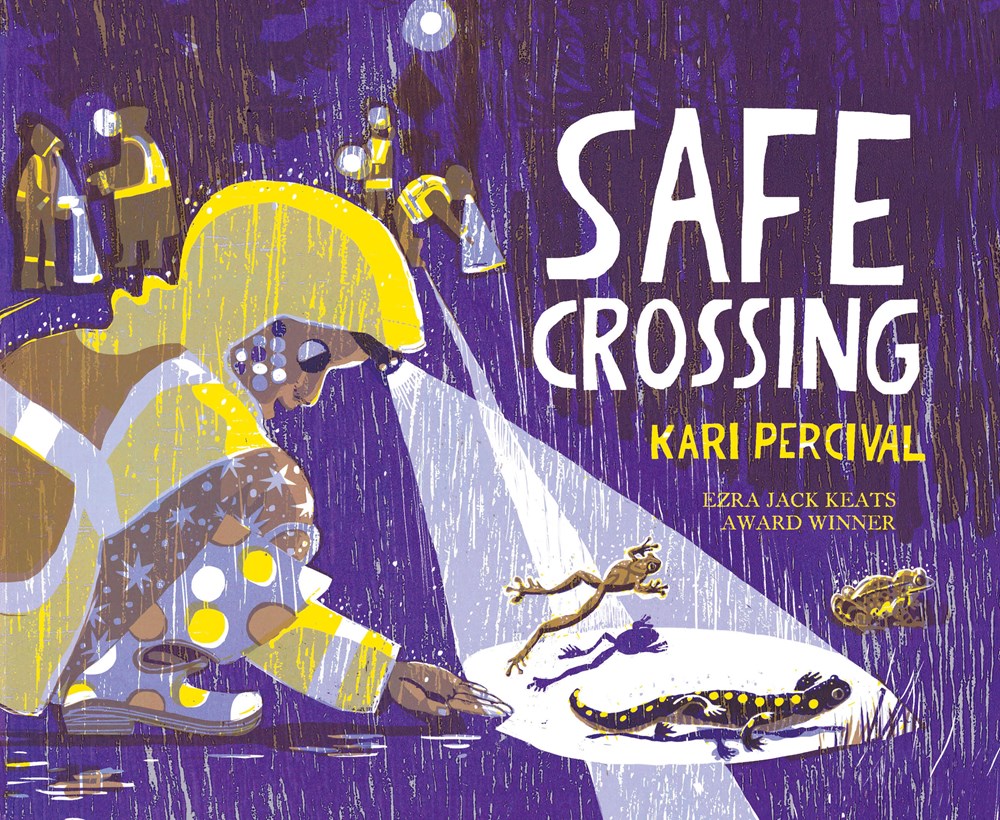PhD in Environmental Studies
Find Solutions to Crucial Environmental Challenges
Our doctoral program is founded on the conviction that theory and practice go hand-in-hand and that our most essential research questions arise from integrating professional experiences and scholarship. Approach your research with a multidisciplinary perspective, integrating science, policy, humanities, education, and service to pursue sustainable solutions to pressing local, national, and international environmental challenges. Our innovative low residency model allows you to pursue your PhD without putting your life on hold.
This degree is offered by AU New England in a low residency format.
Program Overview
The doctoral program in Environmental Studies is a 66-credit program that can be completed in 4-5 years. It utilizes a cohort-based low residency model to provide a rich learning experience accessible to working professionals.
In this program, you’ll engage in coursework and seminars with a diverse and supportive group of students and faculty whose experience and wide-ranging interests will augment your own. Specialize in the research area for which you have a passion and apply the theories and methods best suited to your research interests. Study with faculty who bridge disciplinary and methodological boundaries, who model the integration of scholarship and practice, who emphasize the role of service, and who are recognized locally, nationally, and internationally.
Environmental Studies integrates a wide range of concepts and ideas and embraces multiple methodological approaches to understanding and solving critical and emerging environmental challenges. The current areas of research interest and expertise among ES PhD students and faculty overlap significantly and intentionally and indicate the richness of content, dialog, scholarship, and practice in our program. The following illustrates the research areas of our students and faculty:
- Conservation Psychology
- Ecology and Conservation Biology
- Environmental Decision-Making, Policy, and Governance
- Environmental Humanities
- Environmental and Social Justice
- Environmental, Sustainability, and Science Education
- Food and the Environment
- Resilience, Climate and Environmental Change

Julia D. Gibson, PhD
PhD Program Director, Core Faculty
Environmental Studies & Sustainability
Our learning community encourages free and open inquiry, a sustained and challenging discourse, the consideration of diverse and multiple perspectives, issues of mutual interest, an awareness of the learning process, and room for self-reflection. Each entering class travels through the four phases of the program together as a cohort group, developing a deep interest in each others’ work, establishing lifelong bonds of friendship and collegiality, and developing measures of support and critique that are invaluable learning tools.
The program uses a hybrid delivery model. Students undertake their coursework through a combination of 1 on-campus residency per semester for the first three phases, along with synchronous and asynchronous online engagement. This hybrid approach allows students to participate in the program without having to uproot themselves and put their careers on hold.
Mentoring and advising are crucial aspects of our learning community. The faculty cultivates strong mentoring relationships. During the first year of the program, students are encouraged to work closely with all of the faculty. Through coursework, they learn about each faculty member’s research interests and teaching approaches. Throughout all four phases of the program, students and faculty work very closely together in small classes, becoming intimately familiar with their common interests and ideas.
Upon entering the program, students are placed with an academic advisor who helps guide them through the initial phases of the program. During the second year, students typically chose a faculty member to serve as their dissertation chair. The chair is deeply interested in the student’s work, providing support and encouragement, helping the student develop substantive expertise, as well as exploring issues of voice and expression. Through various consultations, the student and chair become a learning team, thinking through scholarly choices and directions.
Our Work
Students who pursue AUNE’s PhD in Environmental Studies are united by the desire to research and move forward crucial environmental issues. They have diverse academic, professional, and personal experiences that add value to the comprehensive curriculum. Our students' and graduates’ backgrounds include:
- Academic and Research Positions. Field biologists and conservation biologists who enter this program typically have extensive practical experience and have worked for state, federal, nonprofit, and non-governmental organizations in the US and abroad. They frequently seek positions in academic settings or research institutions after earning their PhD.
- Advanced Environmental Scholarship and Research. Environmentalists with significant work experience pursue this program to grow both academically and professionally. They are reflective practitioners interested in furthering their scholarship and research.
- Career Advancement. Educators, college faculty without a doctorate, independent scholars, education and policy consultants, journalists, naturalists, conservation biologists, environmental educators, and recent graduates of master’s level ecology and environmental studies programs earn their PhD in Environmental Studies from AUNE to advance their chosen careers.
- New Approaches. Independent scholars, outdoor or adventure educators, therapists, social workers, writers, and artists interested in the psycho-spiritual aspects of environmental studies pursue this program to develop new approaches to learning, teaching, healing, and organizational change.
Additional Program Details
Degree Requirements
Students have a maximum limit of ten years from the date of entry to complete all degree requirements, including the dissertation, and 66 semester-hour credits beyond a Master’s. The program is organized into four phases: Foundation Courses, Research Strategies and Learning Domains, Candidacy, and Dissertation. Each phase is described below. Students must complete the Qualifying Exam and successfully defend their Dissertation Proposal before admission to the Dissertation Phase. A listing of specific courses and course descriptions can be found in the Academic Catalogue.
The initial phase of AUNE’s doctoral program in environmental studies instills the foundations of interdisciplinary environmental studies and scholarship through intensive, integrative, theoretically oriented courses. Topics include research design, ecological thought, applied ecological analysis, global environmental change, political economy and sustainability, and environmental history.
On Campus Residencies
- Summer Semester: 6-day intensive in June
- Fall Semester: 1 weekend in October
- Spring Semester: 1 weekend in March
The program’s second phase includes a series of seminars about scientific research where students focus on methodologies, literature, and theoretical frameworks to guide their research interests. They discuss their work with leading scholars and writers and learn how others frame and execute their research. Students also design and complete four individual “learning domain” courses, each with an individual mentor, that allow them to focus and deepen their knowledge and research skills in their specific area of future dissertation research.
On Campus Residencies
- Summer Semester: 6-day intensive
- Fall Semester: 1 weekend
- Spring Semester: 1 weekend
During the candidacy phase (or the dissertation phase), students complete a service learning project related to their academic goals. In this phase, students also write and submit their qualifying exam in the form of an integrated essay about their area of research interests. Finally, students prepare and defend their dissertation proposals. The timing and sequence of the candidacy phase will vary for each student, depending on her or his own pace.
On Campus Residency
- Spring Semester: 1 weekend
During the fourth and final phase of the program, students participate in seminars designed to support all aspects of the dissertation process. They design and conduct original research and analyses that have direct social, environmental, political, and educational impacts. Finally, they write and defend their doctoral dissertation. This phase of the program can be completed entirely online with no required residencies on campus.
Faculty Spotlights

Jason Rhoades, PhD
Core Faculty

Abigail Abrash Walton, PhD
Teaching Faculty

Elizabeth McCann, PhD
Core Faculty

Meaghan L. Guckian, PhD
Director
Centers, & Institutes, & Student Groups
The Department's many centers, institutes, and student groups offer students diverse and compelling opportunities to further their scholarship and practice while contributing to tangible positive change.
Admissions
How to Apply
Antioch University New England processes applications for most programs on a rolling basis, so we encourage you to apply as early as possible. All application materials should be received in Admissions by the dates listed below. If you have any questions, please get in touch with the Admissions Department.
| Program | Term | Deadline |
|---|---|---|
| PhD Environmental Studies | Summer | February 1 |
| Fall | June 15 |
- Complete the online admissions application, including:
- Essay questions, admissions and program-specific
- Resume/curriculum vitae (CV)
- Non-refundable $50 application fee
- Submit official transcripts from all colleges or universities where you earned a degree or certificate.
- email transcripts to [email protected], or
- mail to Office of Admissions Antioch University New England 40 Avon Street Keene NH 03431-3516
- Three letters of recommendation are required from people who are in a position to evaluate your professional or academic work. The person making the recommendation may not be related to you.
- There are additional requirements for International applicants
- Interview with a faculty member of the department to which you seek entry if selected. This can be in person, by phone, or via Skype.
- Master’s and Certificate Programs do not require the GRE or any other standardized test for admissions. We consider all of your application materials and evaluate your academic potential in a variety of ways.
Official transcripts should be emailed to [email protected] or mailed to the Office of Admissions Antioch University New England 40 Avon Street Keene, New Hampshire 03431-3516. All application materials submitted become part of an applicant’s file and cannot be returned.
Criteria
As a graduate school providing doctoral-level education, Antioch University New England assesses each applicant’s academic experience and promise, personal and interpersonal competence, and professional experience and promise. Our aim is to attract a talented, committed student body marked by professional, ethnic, and cultural diversity. All doctoral students must maintain a full-time course load. Waiving required courses will be approved only in exceptional situations. Transfer coursework from another accredited doctoral program will be evaluated on a case-by-case basis.
Requirements
- A Master’s degree either in an environmentally-related field or in a field that has prepared the applicant to undertake the research required in the PhD program.
- In extraordinary circumstances, when the applicant can demonstrate significant life or professional experience, any of the aforementioned requirements may be waived by the Doctoral Admissions Committee.
- The Department of Environmental Studies does not require the GRE or any other standardized test for admissions. We consider all of your application materials and invite you to demonstrate your academic potential in a variety of ways.
Portfolio
The Doctoral Program in Environmental Studies requires an application portfolio, which must be received by the application deadline. The application portfolio includes seven documents:
- Application, which provides the most recent information about your education, professional experience, references, and other personal data.
- Transcripts from each college or university attended, indicating courses taken and degrees earned. Both undergraduate and graduate school transcripts must arrive at the Office of Admissions in a sealed envelope or sent via secure transcripts email service.
- Three letters of reference. These references should be from persons who are or have been in a position to evaluate your work. Your recommenders can submit their letter electronically using the online application or send a signed, sealed copy directly to Admissions.
- Resumé
- Personal statement
- Academic Plan. Prepare a narrative outline of your academic interests, including the principal areas of study, the seminal literature you may read, and some research ideas that flow from these interests. Briefly describe your initial ideas regarding the doctoral dissertation. We understand that these are initial ideas that will be revised throughout your program.
- Writing Sample. This should be one piece of professional or academic work that you think is representative of your finest efforts. It might be a published essay or a chapter of a book, a curriculum, a grant proposal, a business plan, a strategic plan, a newsletter, or other types of documents. The submitted document should not exceed fifteen pages in length. If your document is longer, please excerpt the most relevant section.
Tuition and Financial Aid
Doctoral education is an investment in your future. Let us help you understand the costs and explore the resources available to help make your college education even more affordable. The majority of AUNE students finance their education through some form of financial aid. You may not be sure which federal, state, public, and private aid packages – such as loans, scholarships, and grants – are right for you. Our staff is here to help you so you can focus on what’s most important: beginning your academic program at AUNE.
Cost
| Department/Program Name | Tuition Cost per Credit | Total Program Credits |
|---|---|---|
| ENVIRONMENTAL STUDIES | ||
| Degrees: | ||
| Resource Management and Administration, MS Leadership & Management of Sustainable Systems | $1,204 | 30 |
| Resource Management and Administration, MS *concentrations in International Sustainable Development & Climate Change, or Sustainable Development and Climate Change | $1,204 | 36-38 (with Professional Science Management designation) |
| Environmental Studies, MS *consult academic catalog for concentrations available within the degree | $1,204 | 36 |
| Environmental Studies, PhD | $1,612 | 66 |
| View the Cost of Attendance Components | ||

Start your Antioch Journey
Take your next step - talk to our admissions team to find the right program for you.


